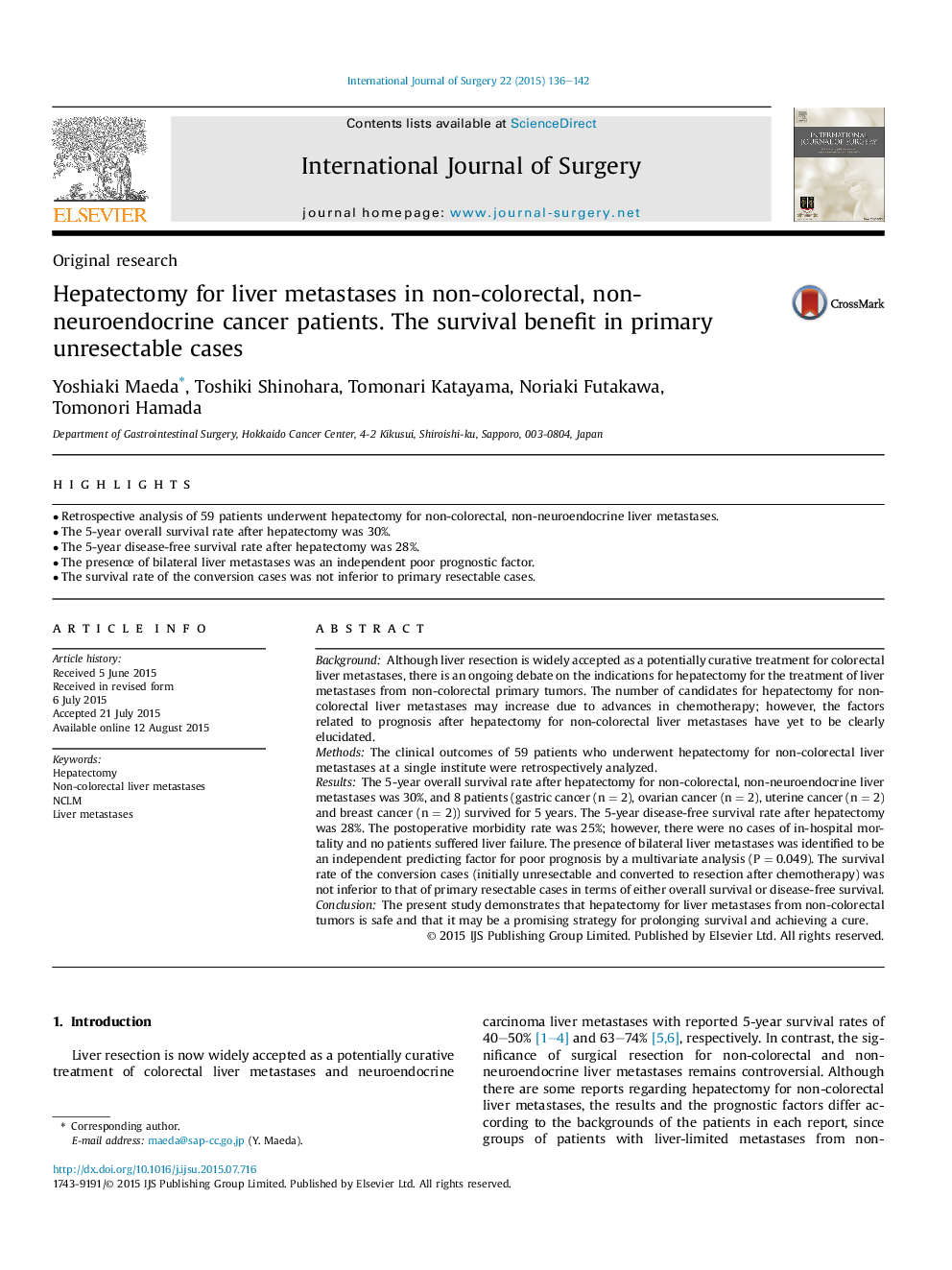| کد مقاله | کد نشریه | سال انتشار | مقاله انگلیسی | نسخه تمام متن |
|---|---|---|---|---|
| 6251426 | 1611970 | 2015 | 7 صفحه PDF | دانلود رایگان |
- Retrospective analysis of 59 patients underwent hepatectomy for non-colorectal, non-neuroendocrine liver metastases.
- The 5-year overall survival rate after hepatectomy was 30%.
- The 5-year disease-free survival rate after hepatectomy was 28%.
- The presence of bilateral liver metastases was an independent poor prognostic factor.
- The survival rate of the conversion cases was not inferior to primary resectable cases.
BackgroundAlthough liver resection is widely accepted as a potentially curative treatment for colorectal liver metastases, there is an ongoing debate on the indications for hepatectomy for the treatment of liver metastases from non-colorectal primary tumors. The number of candidates for hepatectomy for non-colorectal liver metastases may increase due to advances in chemotherapy; however, the factors related to prognosis after hepatectomy for non-colorectal liver metastases have yet to be clearly elucidated.MethodsThe clinical outcomes of 59 patients who underwent hepatectomy for non-colorectal liver metastases at a single institute were retrospectively analyzed.ResultsThe 5-year overall survival rate after hepatectomy for non-colorectal, non-neuroendocrine liver metastases was 30%, and 8 patients (gastric cancer (n = 2), ovarian cancer (n = 2), uterine cancer (n = 2) and breast cancer (n = 2)) survived for 5 years. The 5-year disease-free survival rate after hepatectomy was 28%. The postoperative morbidity rate was 25%; however, there were no cases of in-hospital mortality and no patients suffered liver failure. The presence of bilateral liver metastases was identified to be an independent predicting factor for poor prognosis by a multivariate analysis (P = 0.049). The survival rate of the conversion cases (initially unresectable and converted to resection after chemotherapy) was not inferior to that of primary resectable cases in terms of either overall survival or disease-free survival.ConclusionThe present study demonstrates that hepatectomy for liver metastases from non-colorectal tumors is safe and that it may be a promising strategy for prolonging survival and achieving a cure.
Journal: International Journal of Surgery - Volume 22, October 2015, Pages 136-142
